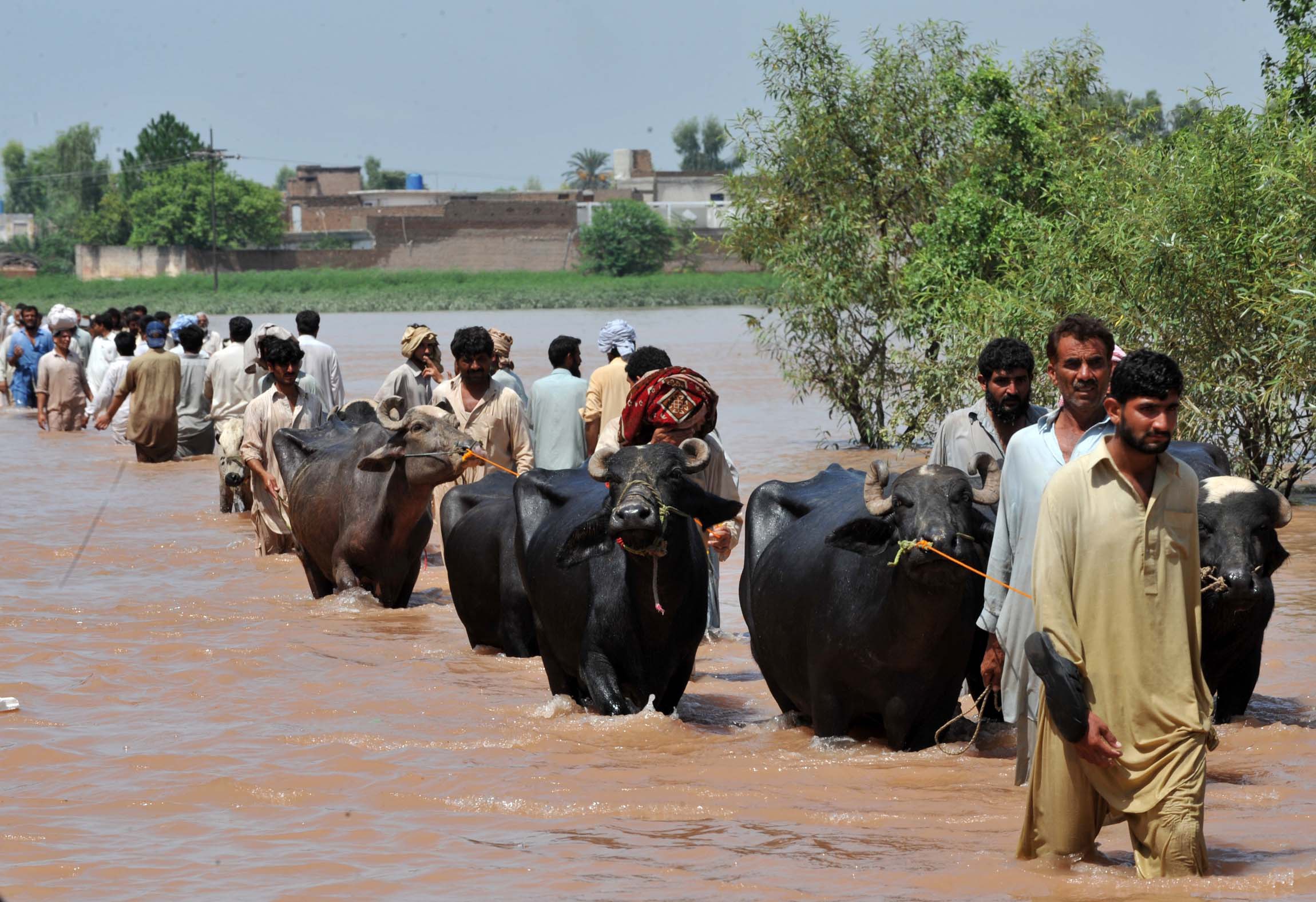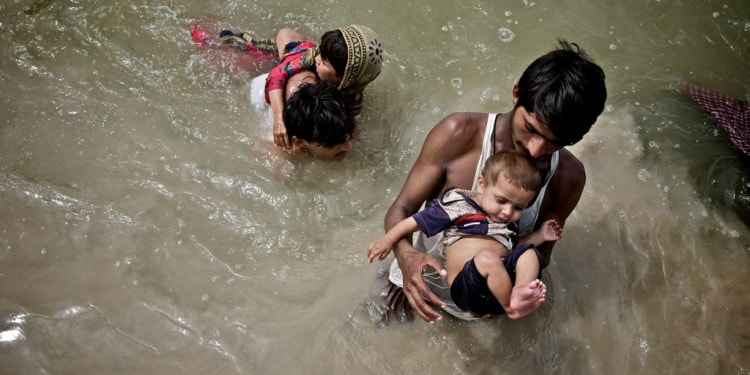Pakistan has suffered yet another blow this monsoon season, with the National Disaster Management Authority reporting 119 lives lost in recent severe rains. The death toll since mid-June, when the monsoon season began, now stands at around 1,061.
This “merciless, unrelenting, torrential monsoon,” as Pakistan’s federal minister for climate change Sherry Rehman described it, has resulted in the destruction of nearly 300,000 homes and impacted more than 33 million people.
Many rivers have burst their banks, cutting off over 3,000km of road and collapsing over 146 bridges. Whilst relief operations are underway across Pakistan, this damage to the country’s infrastructure has restricted the scope of these efforts.
There are further concerns for what the rest of the season will look like. Sherry Rehman warns that by the time this year’s rains relent, around one third of the country could be underwater.
Pakistan is going thru it’s longest,hardest,most unrelenting cycle of monsoons along with river flooding now from the north.The needs gap on the ground is worryingly high.We need the rains to stop. Need national unity & Int’l support in this apocalyptic flood @Channel4News pic.twitter.com/In54XkQeZX
— SenatorSherryRehman (@sherryrehman) August 29, 2022
It is a disaster that has impacted “all four corners of Pakistan,” with the most recent devastation occurring last week in Charsadda and Nowshera as the northern Swat river overflowed. A total of around 230,000 people have had to be evacuated from these districts.
However, it is Pakistan’s southern provinces that are reported to have been the worst affected over the past months.
Related Articles: Deadly Floods in India and Bangladesh Affect Millions | One of Earth’s Driest Places Sees 75% of Annual Rainfall in Just 3 Hours
In Sindh, situated in the southeast, there are displaced people in every village and a collective plea that countries “send help.” Balochistan in the southwest has also seen great losses as this is where most of the 504,000 livestock killed this season were.
Pakistani public figure Bakhtawar Bhutto-Zardari has voiced concerns that the flooding will carry with it water and mosquito-borne diseases, further threatening both the populace and their livestock.
😩 – also have to brace for water borne diseases (cholera etc) & mosquito carrying diseases – have had most requests for nets from people to protect themselves & their livestock. Grateful for the citizens coming together donating individually, via Gov funds & NGOs. So needed. https://t.co/SB11hygFys
— Bakhtawar B-Zardari (@BakhtawarBZ) August 28, 2022
This “climate catastrophe of epic scale […] could well match the magnitude of the big flood that was witnessed in 2010,” asserts Rehman.

Pakistan’s Prime Minister Shehbaz Sharif echoes this in his statement that “the losses, though yet to be documented, are comparable to flash floods of 2010.”
The 2010 flooding of the Indus River was considered to be one of the worst humanitarian disasters in Pakistan’s history. It is estimated that 1,985 people were killed and 14 million were left homeless, figures that this new crisis is fast approaching.

“The horrors of climate change” are blamed for this disaster.
Pakistan is home to 7,532 glaciers, more than anywhere on the globe outside the poles. It is the melting of these glaciers combined with the colossal rainfall — almost 200% above average in July — that has caused devastation on this scale.
Rehman, when asked what her response would be to those that continue to deny the existence of a climate crisis, urged people to “open their phones” and witness the evidence.
Prime Minister Sharif is calling for international aid to support in the speed and scale of Pakistan’s response to the flooding. In answer, the United Nations issued a $160 million flash appeal for donations on August 30.
A number of countries have already demonstrated their support including Turkey, whose Defence Ministry has sent planes carrying relief goods for the victims across Pakistan.
Editor’s Note: The opinions expressed here by the authors are their own, not those of Impakter.com — In the Featured Photo: Kamal, eight months and suffering from dehydration and diarrhea, is carried through a section of water as his family struggles to make their way home through the flooded areas between the cities of Shikarpur and Jacobabad in the Sindh Province of Pakistan. Featured Photo Credit: Colin Crowley/Save the Children.









